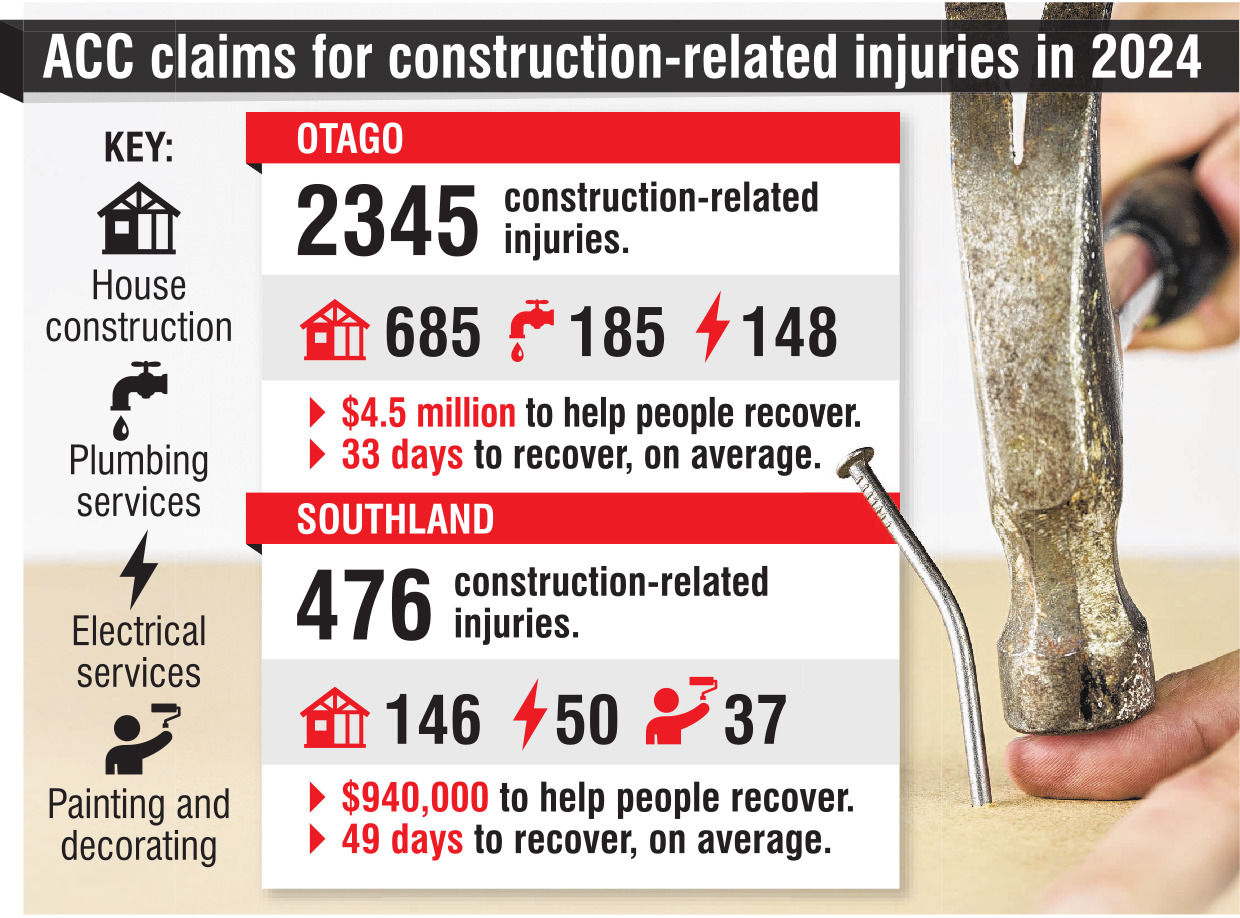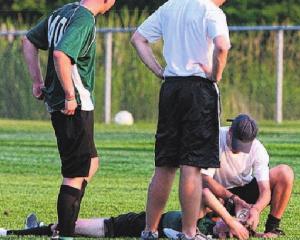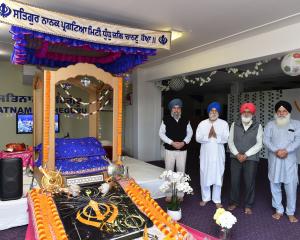
The message comes after the Crown entity accepted more than 30,900 claims for injuries from New Zealanders working in the sector last year, costing the taxpayer $65 million to help people recover.
In Otago alone, ACC accepted 2345 construction-related injuries last year, which came at a cost of $4.5m to help people recover.
The average days off work per claim for construction-related injuries was 33, and the average cost per claim was $1920.
House construction (685) had the highest number of construction-related injuries in Otago, ahead of plumbing services (185) and electrical services (148); and the highest number of injuries occurred in the 30-49 age group (1128).
In Southland, ACC accepted 476 construction-related injuries, which came at a cost of $940,000 to help people recover.
The average days off work per claim for the injuries was 49, and the average cost per claim was $1974.
House construction (146) had the highest number of injuries, followed by electrical services (50) and painting and decorating (37); and similarly, the age group with the highest number of injuries was 30-49 (204).
ACC is now supporting a new programme — the Work Should Not Hurt programme — led by Construction Health and Safety New Zealand (CHASNZ).
It aims to change the idea that pain and injury is a normal part of a career in construction, and ensure tradespeople enjoy long, pain-free careers.
CHASNZ ergonomics programme manager Chris Polaczuk said in 2023, ACC accepted 21,085 soft-tissue injury claims from the trades sector in New Zealand, and estimated it caused workers to take a total of 562,405 days off work.
He said the number of new claims was trending downwards slightly, but time off work was accelerating.
"The past year in the construction industry has been the worst for injuries.
"In the trades, the average days off work for an injured worker have increased from 27 days on average, to 36 days.
"On average, that is around 10 weeks off work from injuring themselves," he said.
Mr Polaczuk said it was important to fix the problem because it was creating a significant cost to the ACC scheme.
He said the Work Should Not Hurt programme was a participative ergonomics programme which took ergonomic research and theory, and made it practical for tradespeople.
He said one of the biggest issues was the "she’ll be right, tough it out" mentality that was so common among tradespeople.
"They see pain from work as everything from a badge of honour, to inevitability.
"It is accepted and normalised in fact.
"We all need to push the point that work shouldn't hurt. It doesn't need to."
Mr Polaczuk said the next generation of Kiwi tradies was playing a leading role in changing that culture.
It was reflected in claims by the 15-29 age-group in Otago and Southland, which were nearly half of those made by the 30-49 age-group last year.
"They are the key because they are not accepting that getting hurt at work, is just part of their week," he said.












